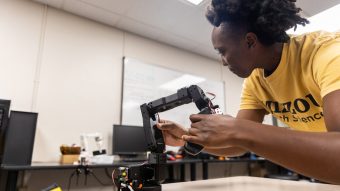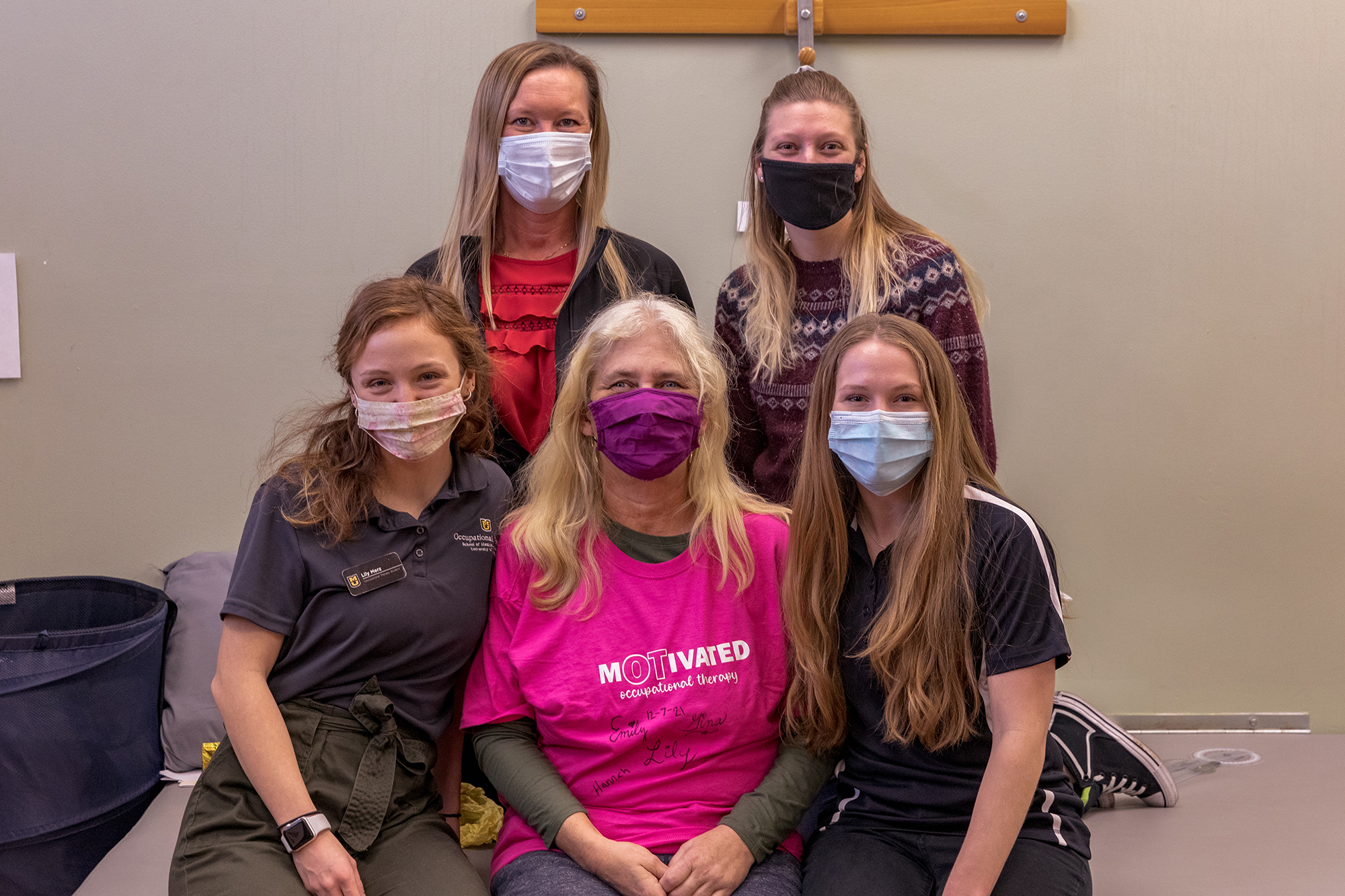
Dec. 15, 2021
Contact: Deidra Ashley, ashleyde@missouri.edu
On Dec. 12, 2020, Columbia resident Cheryl Overstreet had a stroke in her brainstem. After eight days in University Hospital and another 17 at Rusk Rehabilitation Center, she headed home in a wheelchair — uncertain of her future.
Would she be able to walk again?
Would she regain full use of her left arm?
Would she ever get back to doing the activities she loved?
With the help of University of Missouri School of Health Professions practicum students, Overstreet is back on her feet, reclaiming control of her arm — and even getting back to a loved hobby: crocheting.
Rewiring her brain
Overstreet started physical therapy at Mizzou’s PhysZOU in March 2021. The pro bono clinic is one of the nation's largest of its kind and offers students hands-on experience working with uninsured and underinsured people in Mid-Missouri.
The PhysZOU team helped Overstreet relearn simple and complex motor activities, including walking without walker, stair management, and safety navigating around objects in her home. “I’ve done so much walking with PhysZOU that I could have walked a marathon,” Overstreet said. “I’d probably be in a wheelchair if it wasn’t for them.”
While her brain rewired itself to learn basic skills that get her through the day, Overstreet said she longed to get back to her favorite recreational activities such as crocheting and being able to soak in a hot bath on her own.
The PhysZOU team referred her to the TigerOT Clinic, a similar program focused on occupational therapy (OT) and getting patients back to the activities they love.
“I was so excited when I got referred for OT,” Overstreet said. “Everyone I’ve worked with at MU keeps challenging me and not letting me give up on my goals. They’re getting me the help I need.”
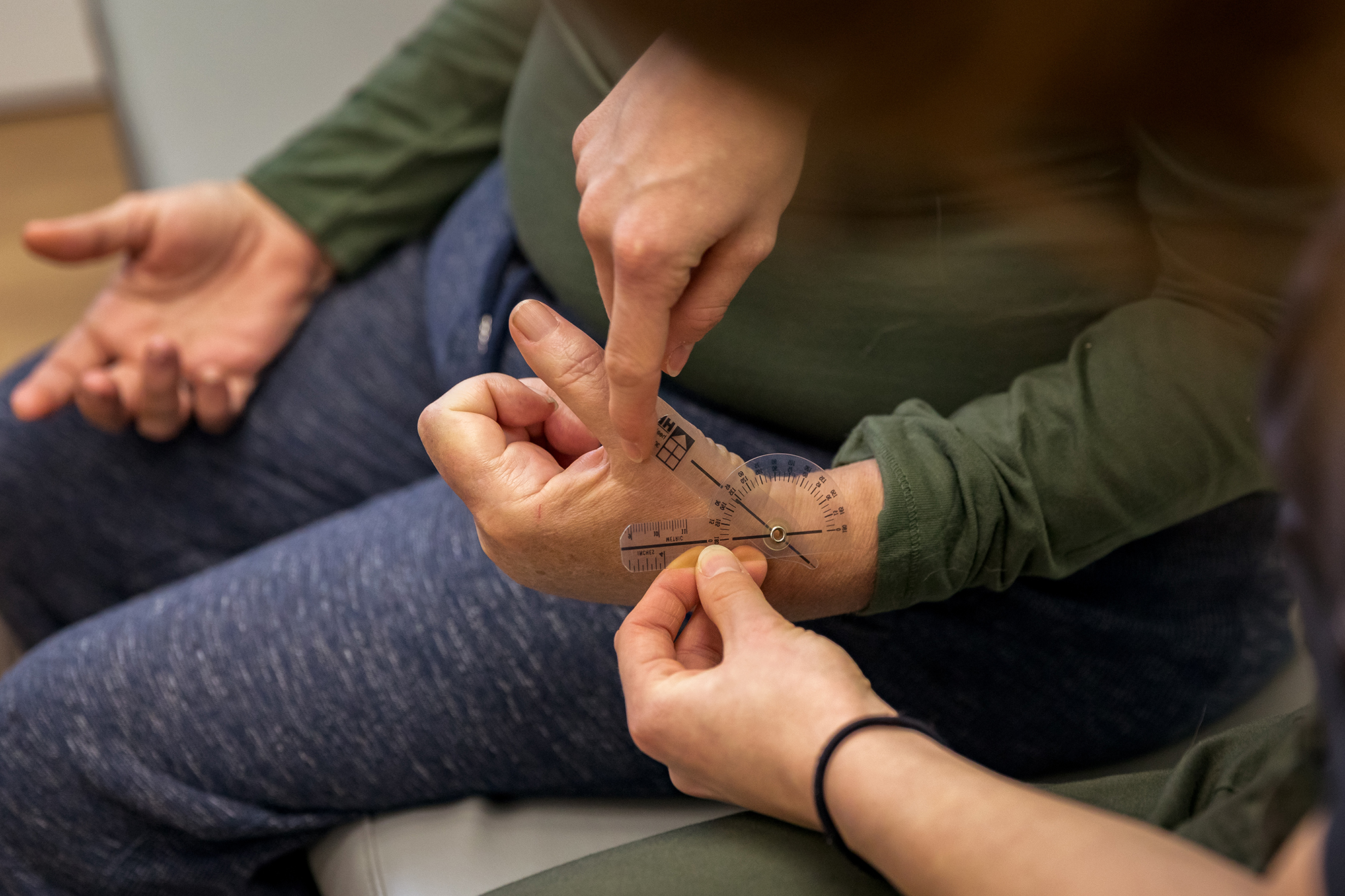
Working toward her goals
At the TigerOT Clinic, Overstreet was paired with second-year occupational therapy graduate students Emily Hollander and Lily Merz. In August, the trio set out to reach Overstreet’s goals to crochet and take a hot bath on her own. “These are perfect OT goals because they are meaningful,” Hollander said. “Each goal encourages the use of both of her hands and helps connect her brain with her body.”
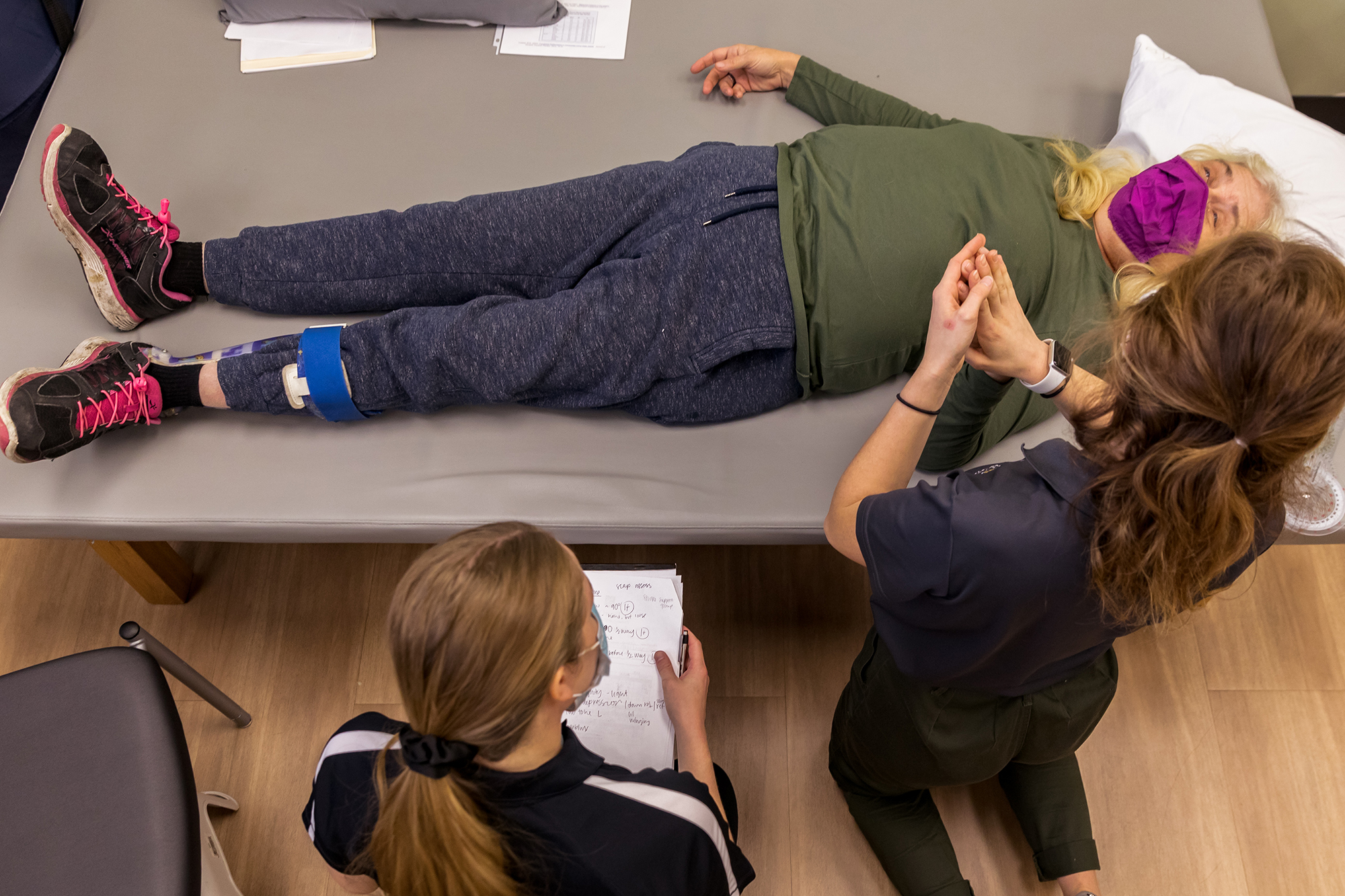
For the next four months, Hollander and Merz met with Overstreet for 45 minutes each week. They practiced things like getting in and out of a bathtub safely, putting dishes away in a cabinet and doing laundry. To help meet the goal of crocheting, Merz turned to her crafty side.
“Because Cheryl’s stroke affects her finger dexterity, she is unable to hold tension on the yarn to be able to crochet,” Merz said. “I work with the Assistive Technology Adaptation and Training Lab on campus and we focus on creating adaptations for people with disabilities. I found some plans online and made some modifications for Cheryl’s needs.”
The end product is a ring-like device that Overstreet wears on her left index finger while crocheting — helping her maintain yarn tension and finally do the hobby she loves. “I used my biomechanics background to create the device and Emily used her psychology background to help encourage Cheryl as she learned to use it," Merz said. "Crocheting was part of Cheryl’s identity that she said she’d lost. It felt so special to be able to help her get that back.”
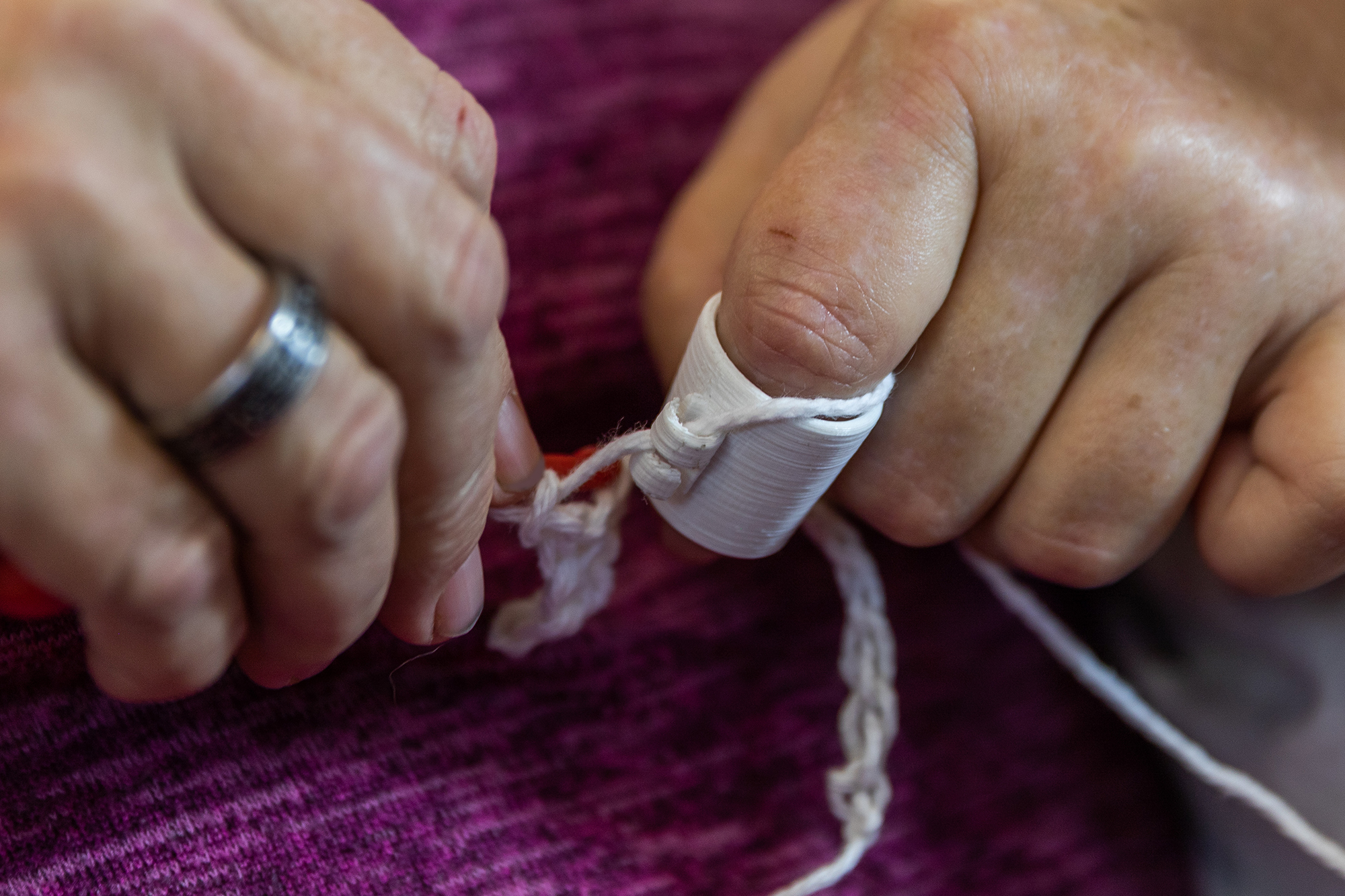
By the end of the semester, Overstreet created a potholder for Hollander. She said more would be coming for Merz and Assistant Clinical Professor Gina Pifer. “I love making things for people,” Overstreet said. “I can’t wait to make my way back to the more difficult things like afghans and scarves.”
Overstreet is also making progress on her goal to take a hot bath by herself. “When I first started here, I couldn’t get out of the bathtub by myself,” she said. “I can do that now and I’m so close to getting the green light to be able to safely do it on my own.”
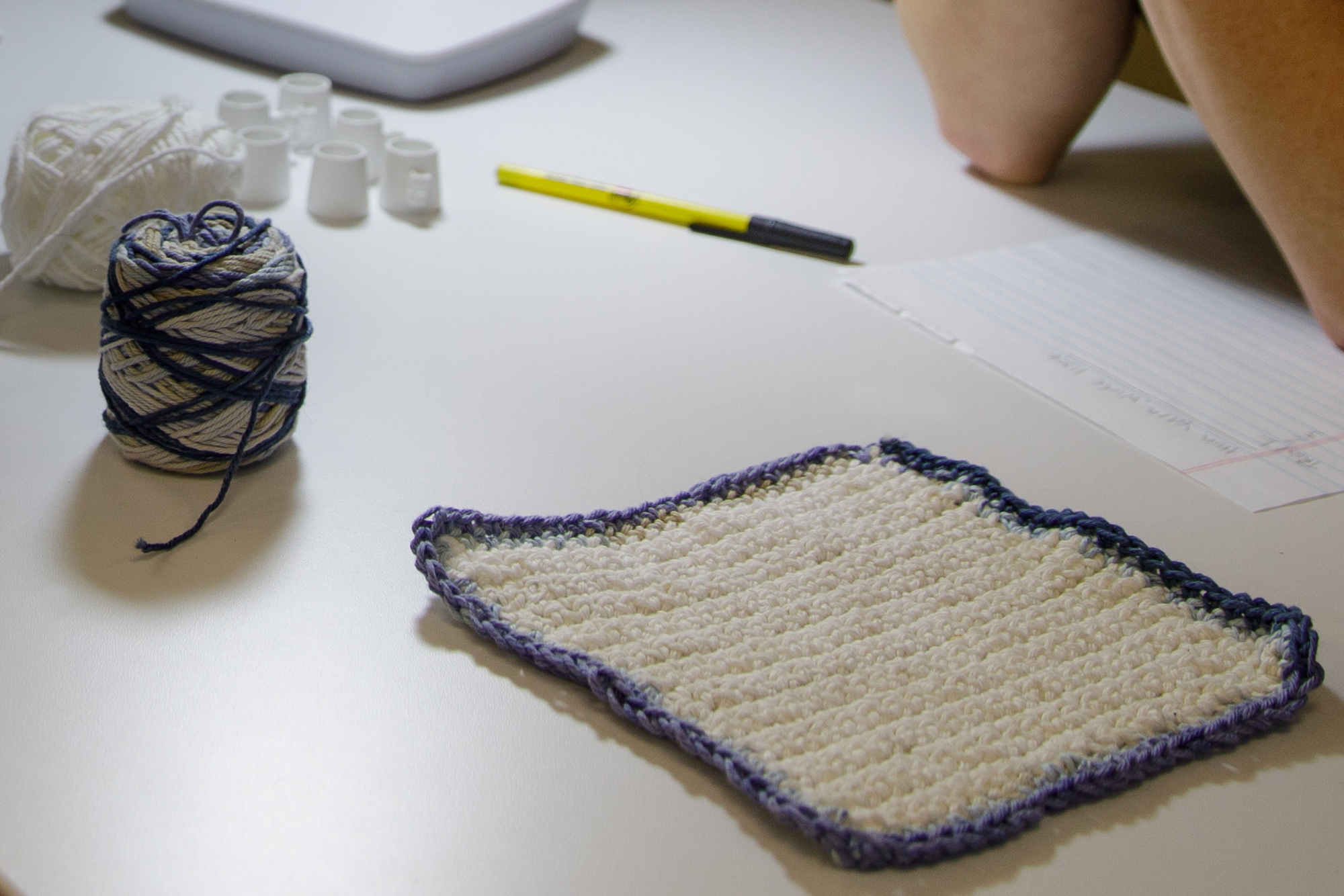
The patient becomes the teacher
While Hollander and Merz focused on helping Overstreet build her own confidence and skills as she healed from her stroke, they, too, gained confidence and skills as occupational therapists. “This was the first time we were able to work directly with an adult patient and it was so impactful,” Hollander said. “Hands-on training really helps students take ownership of their learning and the clinic is a safe space for us to help people in our community while we’re preparing to become occupational therapists.”
Merz echoed that sentiment. “The School of Health Professions has helped me form my professional identity and figure out who I want to be,” she said. “As a student, it can be easy to be critical of yourself and what you’re doing. Just as we were cheerleaders in Cheryl’s journey, our teacher, Gina, was there for Emily and me — cheering us on and reminding us of all the things we were doing right.”
In addition to support from their patient and professors, Hollander and Merz said they often relied on their occupational therapy peers — a cohort of nearly 50 students. “It is a beautiful thing to be surrounded by people with similar hearts and interests,” Hollander said. “I’ve made relationships at Mizzou that I know will follow me into my professional career — and beyond.”
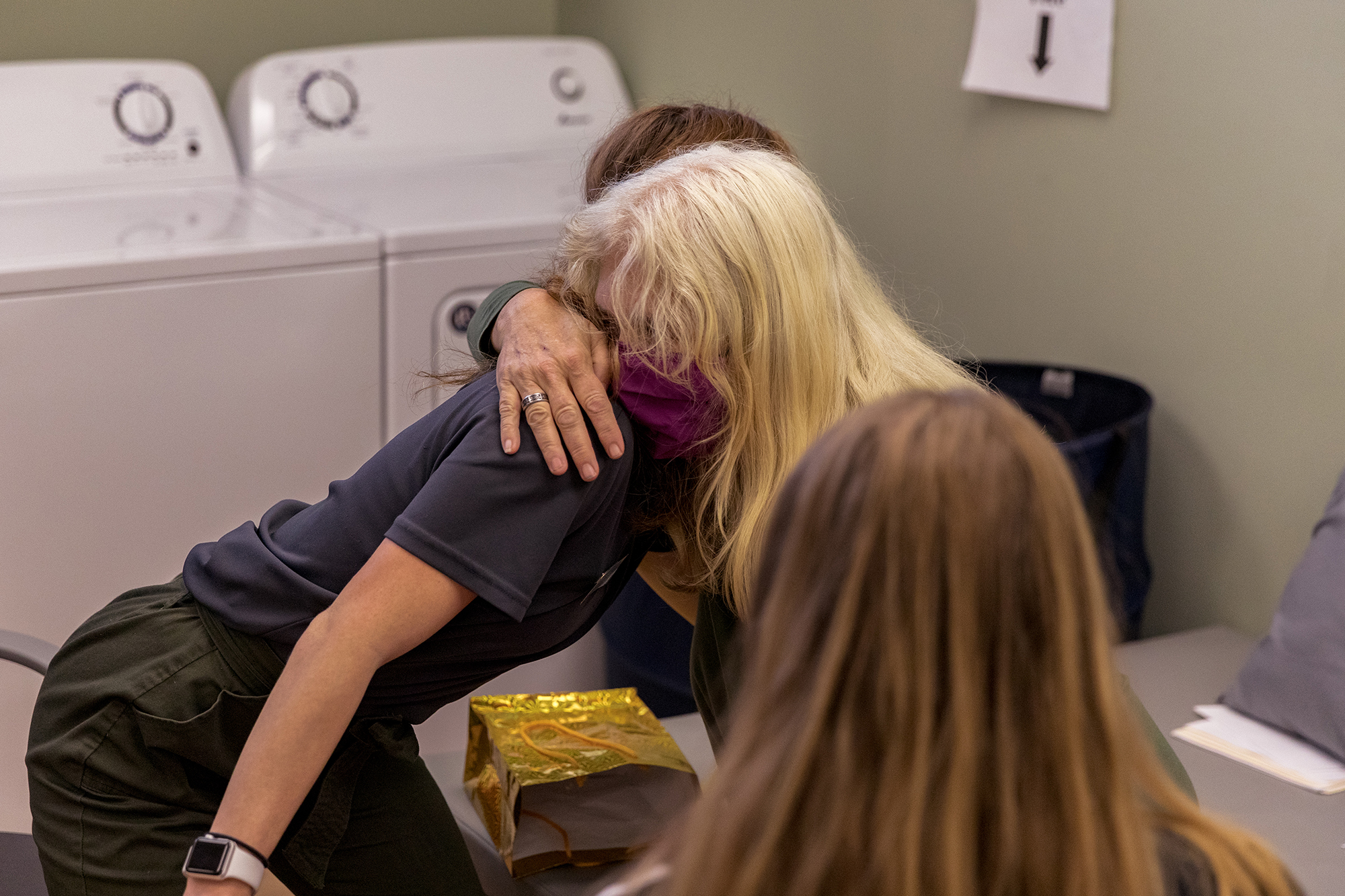
The highs, the lows, the future
Overstreet celebrated her final occupational therapy session with Hollander and Merz on Dec. 7. Soon, she’ll be assigned new practicum students and continue to regain control of her body through the PhysZOU and TigerOT Clinics. “I’m going to miss Emily and Lily terribly,” Overstreet said. “They taught me I can do more than I thought. They kept me motivated and wouldn’t let me put myself down. I don’t know where I’d be today if I didn’t have them.”
Hollander and Merz will graduate from the School of Health Professions in May 2022. After graduation, Hollander plans to return home to the West Coast. Merz hopes to stay in Columbia and start a group that merges her passion for occupational therapy and personal training.
